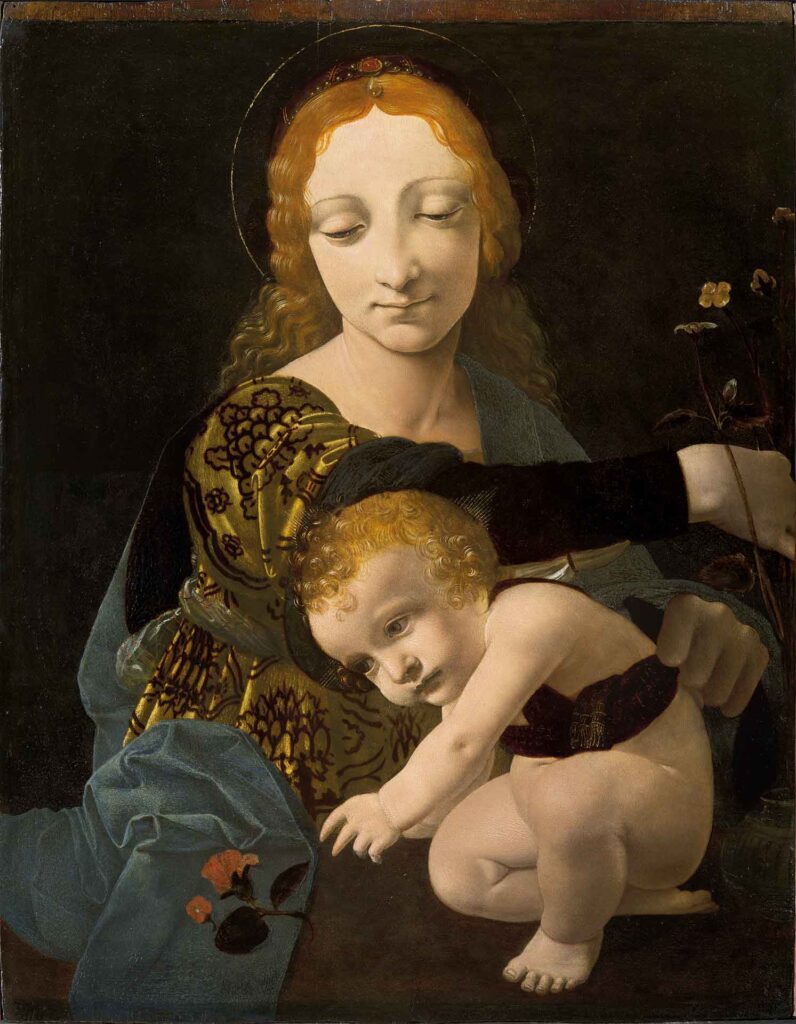Madonna and Child
Giovanni Antonio Boltraffio , ca. 1485-1490
Description

The Virgin wears a rich green velvet garment decorated with the thistle motif that alludes to the redemption of the humankind from the original sin through Christ’s Passion. The flowers have also a special meaning: the mock-orange flowers, known as Madonna’s jasmines, in the vase on the right, relate to the Virgin, while the red pomegranate flower toward which the Child stretches his hand evokes his future Passion.
The painting can be read as an allusion to the Sacrifice of Jesus, evoked also by the sad expression of the Mother and the serious and conscious gaze of the Child.
Giovanni Antonio Boltraffio was one of the first, and perhaps the most interesting, of the pupils of Leonardo da Vinci, who moved to Milan in 1482. Boltraffio’s training in Leonardo’s workshop is particularly evident in this panel, possibly based on drawings by Leonardo himself. The whole composition is Leonardesque, the connected and opposing movements of the figures, transmitting the sense of restrained energy that characterizes the work of Leonardo and his pupils.
This work was in Milan in the Litta collection and Gian Giacomo Poldi Pezzoli bought it in 1864. It is considered a masterpiece of 15th century Lombard Art.
Data Sheet
Author
Giovanni Antonio Boltraffio, Milano, documented 1491 – 1516
Date
ca. 1485-1490
Material and technique
Oil on panel
Measures
45.5 cm x 35.6 cm
Acquisition
Gian Giacomo Poldi Pezzoli bequest, 1879
Inventory number
1609
collection
Paintings
The Museum hosts over 300 paintings. Among them, many Italian works from the Renaissance: masterpieces from Tuscany (Botticelli, Piero della Francesca, Pollaiuolo), Lombardy (Luini, Boltraffio, Solario) and Veneto (Bellini, Mantegna). Important is also the group of 18th century Italian painting (Guardi, Canaletto, Tiepolo, Fra Galgario). In the collection, there are mainly portraits and small size paintings.
